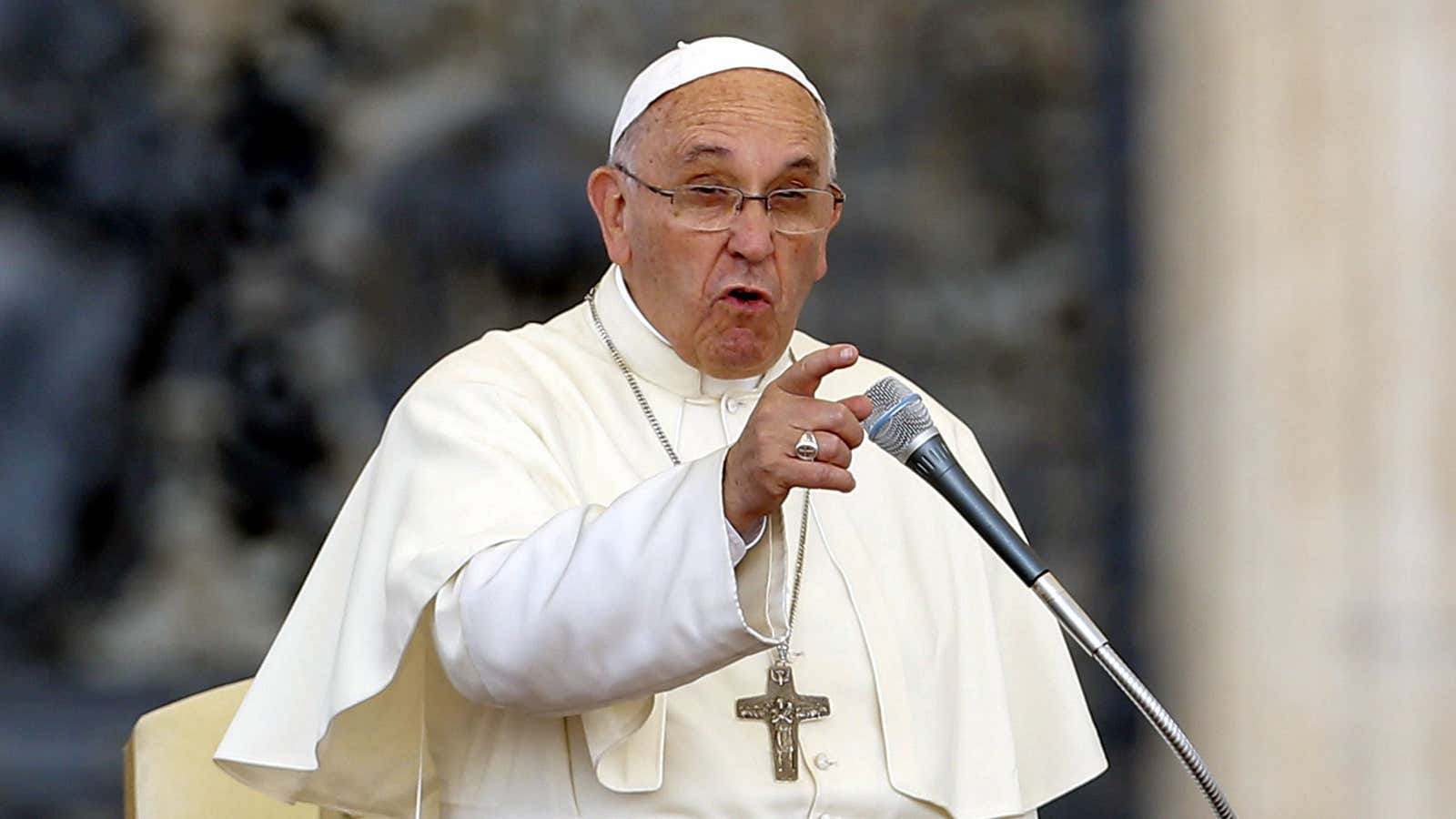An encyclical authored by Pope Francis was leaked to the media this week, confirming reports that the leader of the world’s 1.1 billion Roman Catholics will say that climate change is caused by humans and that science must guide the world’s response.
But, in keeping with Catholic economic doctrines, he comes out strongly against the carbon trading schemes that have been among the most popular solutions to the problem. The following section was translated from the original Italian document by Quartz:
The strategy of buying and selling emissions credits can give rise to a new form of speculation and would not serve to reduce the global emission of polluting gas. This system seems to be a quick and easy solution with the appearance of a certain commitment to the environment, which however does not imply by any means a radical change in the scale of circumstances. Thus, it may become an expedient that supports continued excessive consumption by certain countries and sectors.
There are lots of tools for policymakers to limit emissions in an effort to prevent global warming’s harshest consequences, but most of them will rely on creating incentives not to use the remaining cheap oil left in the ground. The simplest way to do that, economically speaking, is to tax carbon use, but that can be difficult to enact and execute. (No doubt the world’s Catholics, including US Speaker of the House John Boehner, will give serious thought to it nonetheless.)
Instead, many countries turn to the idea of carbon-trading markets, an idea in the US known as “cap and trade”—and in Europe a reality called the European Union Emission Trading Scheme. Broadly, these schemes rely on a steadily lowering cap on carbon emissions, but they allow companies to trade away the gap between what they emit and their cap. This creates a market where you can buy the right to pollute as long as someone else is clean. Hypothetically, this market will ease the transition toward a low-emission future by allocating remaining resources to those with the most need.
But the Pope, like other critics of these schemes, fear they will disadvantage those who cannot afford to pay the price set by the market, whether the poor in wealthy countries, or the poorer countries of the world. The Catholic church has long criticized capitalism and markets as exploitative, speculative, and idolatrous of money, from Pope Leo XIII’s Rerum Novarum in 1891 to Pope Francis’s attention-getting exhortation in 2013. Just don’t tell the Vatican Bank.
Despite critics’ claims that the Church’s new antagonism to climate change is motivated by expediency, it seems Pope Francis is insisting that a Roman Catholic stand against global warming will be as unique as its economic rhetoric. That, however, may indicate that the new teaching’s influence in the temporal world may be as limited.
